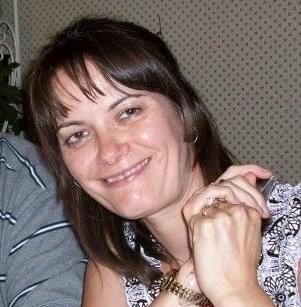Meet Suzanne Brosgole-Setari LCSW, NYCHA Social Work Supervisor
March is National Social Work Month; to honor the importance of social work and the dedicated professionals who support the NYCHA community, we reached out to longtime NYCHA Supervisor Suzanne Brosgole-Setari LCSW to learn about the broad range of social services she and her colleagues provide for NYCHA residents every day.
Can you tell us about your work at NYCHA?
I am a Supervisor in NYCHA’s Family Partnerships Department – basically the social services arm of the Housing Authority. My department has had many names: when I started, it was called the Department of Resident Review and Counseling. Although our name has changed, the work we do today is very much like what we did back then. We receive referrals – often from a development’s management office, or from NYCHA’s Law Department, sometimes from the residents themselves, about challenges that arise and that need care and attention: maybe someone is disabled and needs help with mobility; maybe a tenant owes back rent; maybe a case of abuse or neglect is suspected and requires investigation; maybe an elder needs home care. There are so many different needs, and we handle them all. NYCHA Social Workers learn to be ready for pretty much anything.
We handle cases of domestic violence, suspected child abuse, disputes between neighbors, cases from the Law Department. Our Social Workers sometimes need to assess whether a tenant is competent enough, mentally capable and stable enough, to attend a tenancy hearing.
Each case gets assigned either to an MSW Social Worker – a NYCHA staff member with a master’s degree in social work — or to a Community Associate. Through phone calls and home visits, that staff member will assess what’s really going on, how urgent the situation is, and so on. They do the work to connect folks who need help with the providers of the kind of help and services they need.
You just had your 30th anniversary at NYCHA. You must have supported many residents during that time.
Yes of course. I’ve made literally thousands of home visits in my career.
Please tell us about the path that brought you to where you are today.
I graduated with my Master of Social Work (MSW) from NYU in 1993, and then I started with NYCHA in ‘94 as a Social Worker in Manhattan, covering Manhattan South. And then – I think it was around ’96 – my supervisor retired, and they put in a different supervisor there, but they also needed another supervisor for what was then called the Senior Resident Advisor program, which no longer exists. In that program, we had an individual worker assigned to each senior building, and I would go visit everyone, at every site, every week. I covered nine sites.
What is a senior building?
NYCHA has general population buildings, and then it has senior citizen buildings as well. Anyone age 62 or over is eligible to apply for a transfer to a senior citizen building. Back then, we had a program in which a NYCHA caseworker – it was usually a Community Associate – would have a regular eight-hour schedule five days a week, but they also lived onsite in the building they served, in an apartment for which they didn’t have to pay rent. They were basically on call all the time, which was the tradeoff for living there rent-free.
Did you participate in that program?
No – but I supervised staff who did. I would have monthly meetings with my group, I organized trainings for them, and I made regular visits to each individual site. I supervised nine Manhattan sites myself. I had senior buildings on the Lower East Side and all the way up to 168th Street by Columbia Presbyterian Hospital.
What attracted you to social work in the first place?
I guess I always knew I wanted to be a social worker. I was always the helping type. My mother had several disabilities, and she was legally blind as well. My father was also legally blind, but he always worked – he was a full professor at St. John’s University, an experimental psychologist. I can certainly tell you that for me, college was always in the cards. And I always just wanted to help.
What do you like best about the work you do?
The people I work with are so important to me. As long as you have colleagues you can rely on and that you can get along with, if you have good, friendly people who like working as a team, and you work for an administrator who has your back, and you always have her back, and you get along, and you’re working together to make things better for the people you serve, then that’s pretty much the best scenario possible. And that’s very much what I have now.
I hope and believe that the folks in my group feel respected and enjoy working together. When we all work well together, it makes what can be a very challenging job easier in every way.

